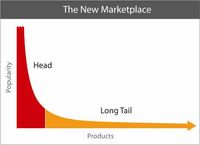patents
Round Two of the Copyright Wars
America's corporate state and China's Communist state are now in sync regarding the idea of slowing progress through intellectual property...
Read moreGraphene and the Nature of Change
It's going to take some public pressure to get non-exclusive licensing, essentially an industry standard like WiFi rather than a...
Read moreCaesar Was the Bad Man
“Had you rather Jobs were living and die all slaves, than that Jobs were dead, to live all free men?”...
Read moreDiminishing Patent Returns in Age of Software
The nature of software is there are always multiple ways to do something. So software patents are, at the end...
Read moreHope For Open Amid the Ruins
These are tough times to be for open source. But sometimes the news brings up a green shoot
Read moreWho Will Make the Mozilla Phone?
In theory a mobile Internet client should be no different than a desktop Linux. But every aspect of the design...
Read moreThe Google Party
The rule should be simple. You can patent a mousetrap, but not the idea of catching mice. You must be...
Read moreInk Jet! How Solar is Different from Chips
This illustrates how different solar technology is from computing. We don't know what tomorrow's solar cells will look like, how...
Read moreBiting the Long Tail
In many industries you don't just have a long tail of buyers, you have one of sellers, and by going...
Read moreWill Law Force a Meego-Android Merger?
Android market share peaked in March, and it's now headed down. The Apple iPad has something to do with it....
Read more


















